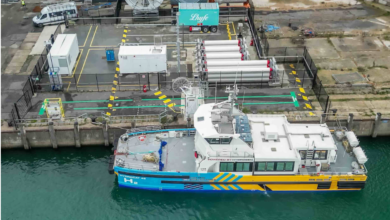EasyJet urges government support for hydrogen in aviation
The airline group seeks industry and government collaboration for enabling zero-emission flights.

EasyJet has urged industry and government to collaborate to support zero-emission aviation technology, primarily hydrogen.
Speaking at the Airbus Summit in Toulouse, France, EasyJet CEO Johan Lundgren stressed the governments support for the development of hydrogen supply and infrastructure at airports alongside investments into renewable energy to support the creation of green hydrogen for aviation. He also called state support for financial incentives for the development and scaling up of zero-emission technology. The airline group also stressed that the early adopters of the new technology should also be incentivised.
EasyJet will be using SAF in the interim, but it believes the most sustainable long-term solution for a short-haul carrier is zero-emission aircraft. It has worked in partnership with Airbus since 2019 to support developing a hydrogen-powered commercial aircraft by 2035. Its crucial role has been to provide a commercial airline’s perspective in developing new zero-emission propulsion technologies for passenger planes.
Johan Lundgren, CEO of EasyJet, said, “Hydrogen and electric-powered aircraft are already flying, with companies like Airbus committed to scaling the technology for commercial flights and aiming for entry into service in the 2030s.”
Guillaume Faury, CEO of Airbus, said, “As an early partner on our journey towards hydrogen-powered commercial aircraft, easyJet is playing an active role in shaping the future of flight and we are committed to our continued partnership in this field.”
To make hydrogen-powered flying a reality, easyJet, among other initiatives, stressed the following:
· Revenue raised from aviation taxes should be used to help fund R&D into hydrogen technology
· Make investments in renewable energy (wind, solar etc.) to support the creation of green hydrogen for aviation
· Provide financial incentives to support the development and growth of zero-emission technology, including airspace charges should be modulated to incentivise early adopters of hydrogen-powered aircraft, slot priority – airlines that fly hydrogen-powered aircraft should be prioritised for peak slots at primary airports
